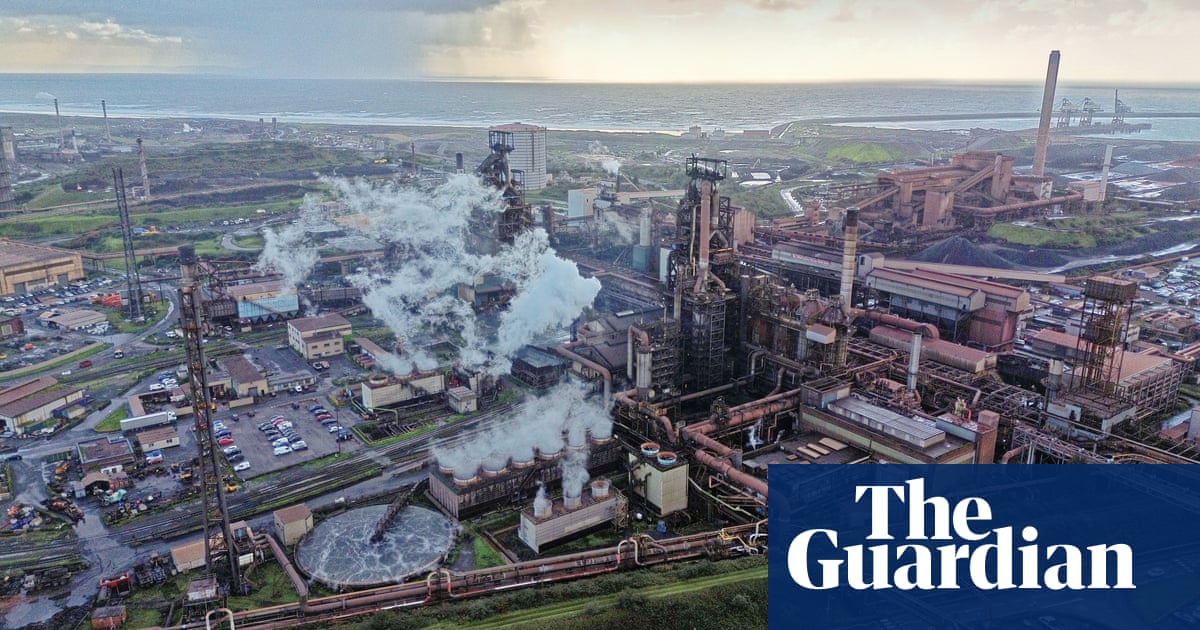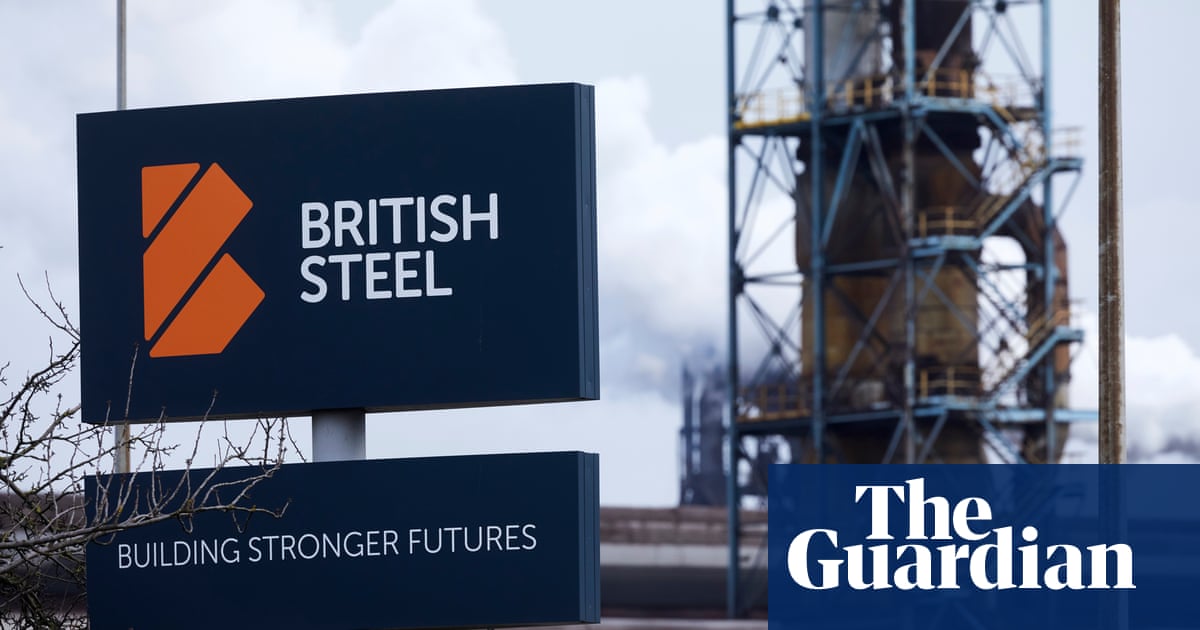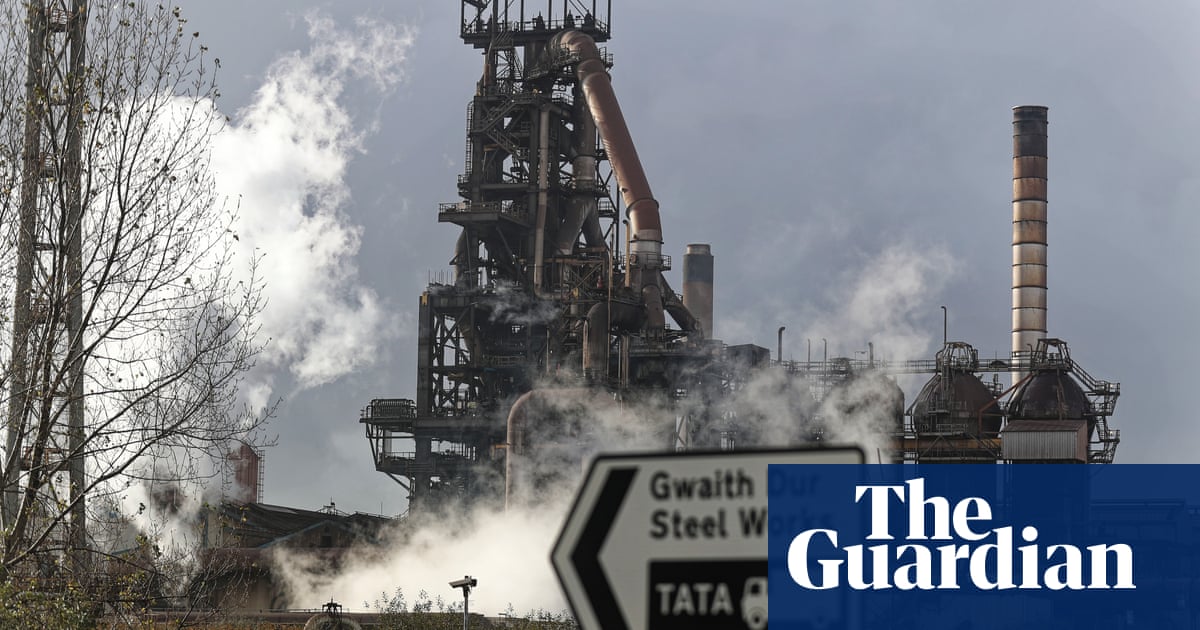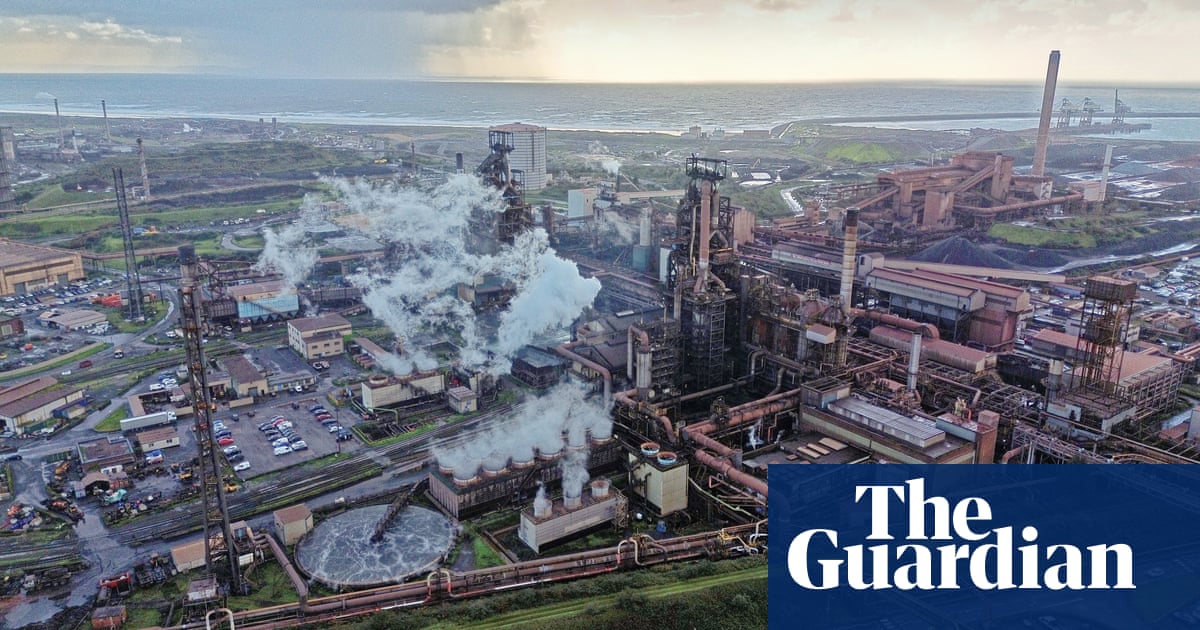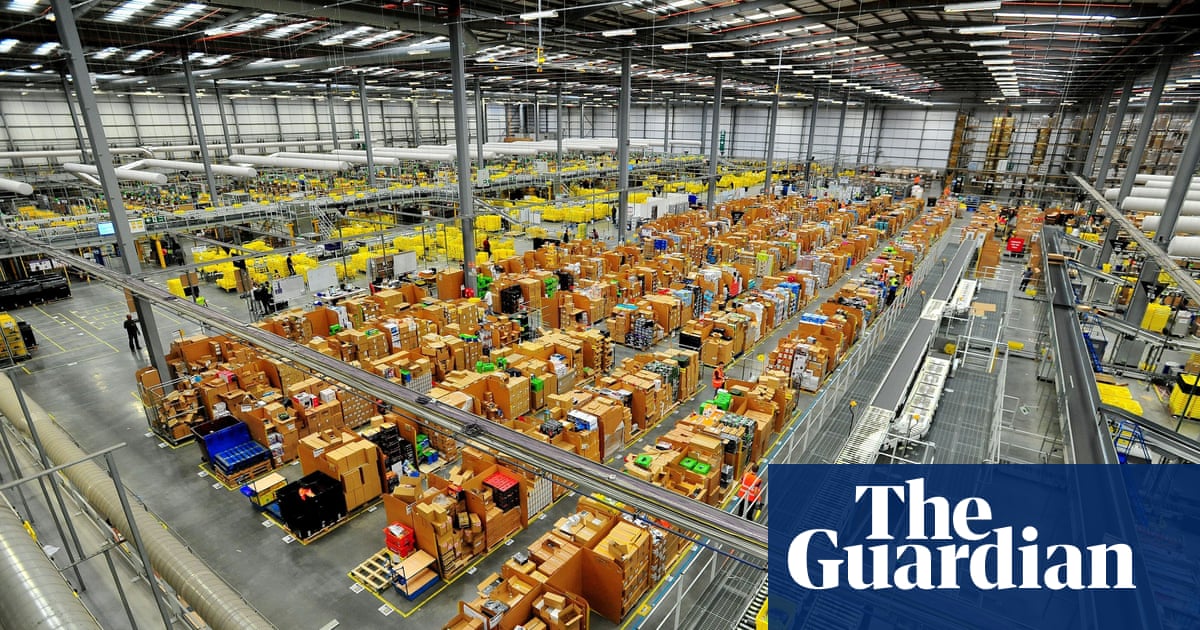
The owners of Port Talbot steelworks have rejected a trade union plan designed to keep its blast furnaces running, putting nearly 3,000 jobs at risk and leaving the UK on course to become the only major economy unable to make steel from scratch.
In what one union said would be a “crushing blow” to workers and UK steelmaking, Port Talbot’s parent company, the Indian-owned Tata Steel, told workers’ representatives that it could no longer afford to continue production at the loss-making plant in south Wales while it completed a four-year transition plan to greener production.
The company, which is getting £500m from the government to help with that plan, broke the news during a summit at the five-star St James’ Court hotel in London, which is owned by the Tata Group.
The shadow business secretary, Jonathan Reynolds, lashed out at the government for providing Tata with funds to pay for its green transition plans without securing a guarantee on jobs.
He said the government’s strategy was “£500m for 3,000 job losses”.
Under the Tata plan, which is expected to be announced formally on Friday, Port Talbot’s blast furnaces will shut down while the company builds electric arc furnaces, which make steel from recycled scrap, a greener and cheaper process.
The Guardian understands that about 200 jobs could be saved under a proposal to keep some of the site’s mills open, to roll steel slab. But the decision is a huge blow for a town where the local economy is so heavily dependent on a single factory.
The Community and GMB unions had put forward a staggered transition plan designed to provide immediate protection for workers.
Under their proposals, the blast furnaces would have remained open during the transition, with at least one continuing to operate until 2032.
But at a meeting in London on Thursday, Tata Steel is understood to have told union representatives that the proposal was unaffordable given Port Talbot’s losses, estimated at £1m a day.
The UK’s only other blast furnaces, at Scunthorpe, are also slated for shutdown during a similar, potentially lengthy transition process to electric arc furnaces.
That would leave the UK as be the only G20 country that cannot make steel from raw materials.
Stephen Kinnock, the Labour MP whose Aberavon constituency includes Port Talbot, called on the government to “rethink their approach” and adopt union proposals for a staggered transition to electric arc furnaces, with jobs protected in the meantime.
That plan had “fallen on deaf ears” during talks, according to Charlotte Brumpton-Childs, a GMB national officer.
“Large-scale job losses would be a crushing blow to Port Talbot and UK manufacturing in general,” she said.
Shutting down Port Talbot’s two blast furnaces would mark the latest grim milestone in a decades-long decline that has seen production fall from 25m tonnes in 1971 to 6m tonnes, while employment in the sector has slumped from 250,000 to just under 34,000.
The industry trade body, UK Steel, said earlier this year that 2024 was a “crossroads” for the British steel industry, at which it could either enjoy a renaissance or continue in managed decline.
Once up and running, new electric arc furnaces will be capable of replicating some of the higher quality grades produced by blast furnaces, typically for use in the automotive industry and industrial processes such as food and drinks canning.
But making higher grades of steel that way is more difficult, meaning the UK could also lose out on the ability to make some products, relying instead on imports.
A government spokesperson said: “We are determined to secure a sustainable and competitive future for the UK steel sector, which is why we have committed £500m of UK government support that will transform the site and protect thousands of jobs – both in Port Talbot and throughout the supply chain.
“Engagement with trade unions is rightly a company-led process. There is a broad range of support for staff affected, including a dedicated transition board backed by £80m funding from UK government and £20m from Tata Steel.
“Chaired by the Welsh secretary with ministerial representation from the Welsh government, the board will support both affected employees and the local economy.”





